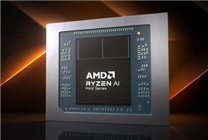### Summary
– **Chinese Talent is Essential**: Chinese researchers significantly contribute to AI advancements in the U.S., especially in Silicon Valley.
– **Continued Collaboration**: Despite geopolitical tensions, collaboration between U.S. and Chinese researchers remains robust.
– **Risk of Isolation**: Restrictive immigration policies threaten the competitive edge of U.S. companies in AI.
—
### The Critical Role of Chinese Talent in U.S. AI Research
The landscape of artificial intelligence (AI) research in the United States is significantly shaped by the contributions of talented individuals from China. As organizations like Meta and top-tier tech companies increasingly rely on this expertise, the implications are clear: a flourishing AI sector in the U.S. is intertwined with the ongoing influx of Chinese researchers.
#### An Invaluable Resource
In June of this year, Meta CEO Mark Zuckerberg made headlines with the launch of the Super Intelligence Laboratory, showcasing 11 newly recruited AI researchers—all of whom were educated abroad. Notably, seven of these experts hail from China, emphasizing the profound impact of Chinese talent on ambitious AI initiatives.
Although U.S. officials have often painted China as a competitive threat to America’s rapid advancements in AI technology, the reality is that many pioneering developments are fueled by the remarkable capabilities of Chinese researchers. Two recent studies reveal that despite tightening immigration policies, Chinese professionals continue to be a dominant force in American AI research across both corporate and academic sectors.
#### Findings from Recent Studies
Recent research underscores the extent to which American tech companies remain dependent on Chinese engineers, particularly in AI. A study conducted by the Paulson Institute highlighted that almost one-third of the top AI talent globally is sourced from China, with a majority active in U.S. institutions. Complementary findings from the Carnegie Endowment for International Peace reveal that among the top 100 Chinese researchers in America, 87 are still engaged in research within U.S. borders.
“As this study indicates, the U.S. AI industry is the greatest beneficiary of Chinese talent,” notes Matt Sheehan, co-author of the studies. Chinese researchers come to the U.S. for work and education, demonstrating resilience even amid rising geopolitical tensions.
#### Continued Cooperation Amid Tensions
Analysis reveals robust cooperation between U.S. and Chinese researchers, evidenced by frequent joint research initiatives since 2018. Partnerships have significantly contributed to the global AI narrative, allowing both countries to leverage their strengths for mutual benefit. Despite the challenges, many researchers from China are motivated to stay in the U.S. rather than return home, highlighting the advantages of working in a leading tech ecosystem.
Concerns have emerged that as the Trump administration continues to tighten access for Chinese talent, the advancement of U.S. scientific research might suffer. Experts caution that such restrictions could undermine America’s leadership position in the AI arena.
#### The High Stakes of Talent Acquisition
Several analysts stress that the rewards of fostering collaborations with Chinese talent outweigh potential risks. Helen Toner, interim executive director at Georgetown University’s Center for Security and Emerging Technologies, asserts that isolating Chinese talent poses a genuine threat to the U.S. tech industry’s innovation cycle. Without these vital contributions, U.S. companies—particularly Silicon Valley firms—risk falling behind in the contest for global AI supremacy.
Even before the announcement of new recruitment efforts, Meta’s AI initiatives had garnered a reliance on Chinese talent. New hires in the Meta AI department are often humorously reminded to become proficient in two languages: Hack, the company’s proprietary programming language, and Mandarin.
Meta’s push for H1-B visas, essential for hiring international talent, further underscores its commitment to securing top Chinese experts. With requests for over 6,300 H1-B visas this year alone, Meta’s priority has become evident. In tandem, the company has published significant joint research with Chinese institutions, reflecting a trend among tech giants like Apple and Google.
#### Challenges for Chinese Researchers in the U.S.
Despite the advantages, many Chinese researchers face increasing hurdles in navigating the U.S. immigration landscape. Concerns about obtaining visas have made the decision to leave the U.S. daunting, with many unsure of their return prospects. Nevertheless, some leading scholars have returned to China’s research institutions after extended periods in the U.S., exacerbating internal tensions within American companies.
Recent statements from researchers reveal discontent regarding the portrayal of China as a security threat, prompting some to seek employment in more supportive environments.
### Conclusion
The critical role of Chinese talent in U.S. AI research cannot be overstated. As Silicon Valley continues to innovate and compete on a global scale, recognizing and nurturing this vital resource will be essential for maintaining leadership in artificial intelligence. Continued collaboration and a welcoming environment for international researchers will not only enhance U.S. technological advancements but also foster a spirit of global cooperation in AI development.





